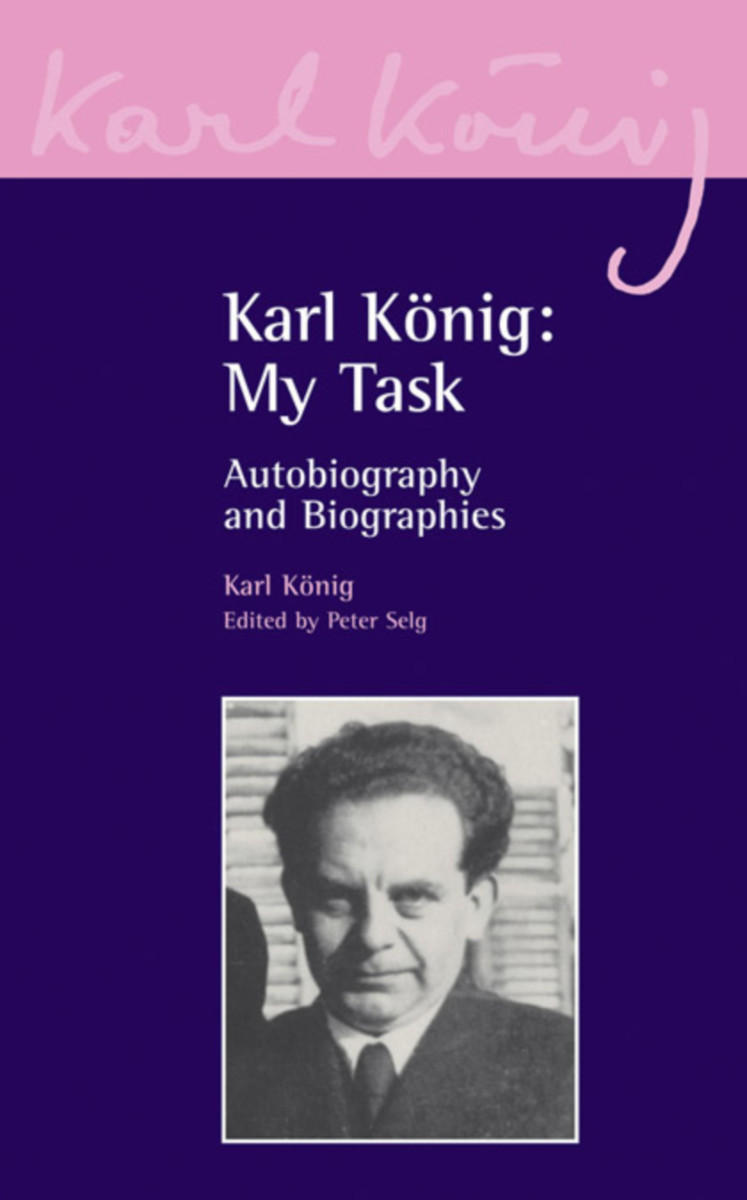- Publisher
Floris Books - Published
21st August 2008 - ISBN 9780863156281
- Language English
- Pages 112 pp.
This book presents an inspiring introduction to Karl König's remarkable life and work. It combines König's autobiographical fragment and an essay by Peter Selg, along with two selected reminiscences written by König's colleagues Anke Weihs and Hans-Heinrich Engel.
Born into a Jewish family in 1902, Karl König grew up in Vienna during the final years of the Austro–Hungarian Empire. He studied medicine, and during that time encounted the work of Rudolf Steiner. Soon after graduating, he worked with Ita Wegman in Switzerland, where he also met his wife Tilla.
Dr. König was a pioneer in the early days of Pilgramshain, a home for children with special needs in Silesia, Germany. However, in 1936 political pressure forced him to leave Germany for Austria, where he began a successful medical practice and became the focus of a group of young people interested in Steiner's work.
Following the annexation of Austria by the Nazis, König and many of the young people around him emigrated to Great Britain as refugees. The ideal of working together as a community was put into practice with the establishment of Camphill in 1939. König was the driving force behind the expansion of the Camphill movement across the British Isles and into Europe, South Africa, and North America. Karl König crossed the threshold in 1966.
C O N T E N T S:
Foreword
Autobiographical Fragment by Karl König
A Biographical Sketch by Peter Selg
Life with Dr. König by Anke Weihs
Some Personal Memories by Hans-Heinrich Engel
Appendix
Notes
Bibliography
Index
Karl König
Dr. Karl König (1902–1966) born on September 25th 1902 in Vienna, Austria, the only son of a Jewish family who owned a shoe shop. He studied zoology, biology, and medicine at the University of Vienna, graduating in 1927. During his studies on embryology, König encountered the works of Rudolf Steiner through Goethe's scientific writings. He immediately identified with Steiner and was soon acquainted with a number of his followers, including Ita Wegman.
Upon graduation, König was offered several high-profile positions in Vienna, but instead accepted an invitation from Ita Wegman to join her clinic in Arlesheim, Switzerland.
König's time at the Clinic would shape the Camphill movement. It was here that he met his wife and co-founder, Tilla Maasberg, and it was here that he first witnessed the Advent Garden. During this festival, during which children with learning disabilities circle a spiral of moss, lighting a candle from a large central beacon, he promised to dedicate his life “to the care and education of these children.”
Following his time at Arlesheim, König moved to Germany and was involved in founding the Pilgramshain Institute—one of the early curative educational (therapeutic) centers based on anthroposophy. However, due to the political pressure of the Nazi regime, König was forced to leave Germany in 1936. He returned to Vienna, where he operated a successful medical practice and led anthroposophic study groups until 1938.
Fleeing Austria after Nazi annexation in 1938, König became part of a small group of doctors, teachers, and artists to be granted political asylum in the United Kingdom in 1939. König moved to Aberdeenshire, Scotland, where this group founded a home for children with learning disabilities, which became the beginning of the Camphill movement. After World War II, more schools were established, as well as curative education villages for adults with disabilities, based on the ideal of working together as a community.
In the following decades, König's Aberdeenshire community grew and expanded into Britain, Europe, and North America, becoming the Camphill movement we know today. During this period, König worked tirelessly to help children and adults with special needs through publications, talks, and seminars—as well as by establishing communities around the world.
Karl König returned to Germany in 1964 and began yet another community, this one near Überlingen, on Lake Constance (Bodensee), where he died in 1966.


